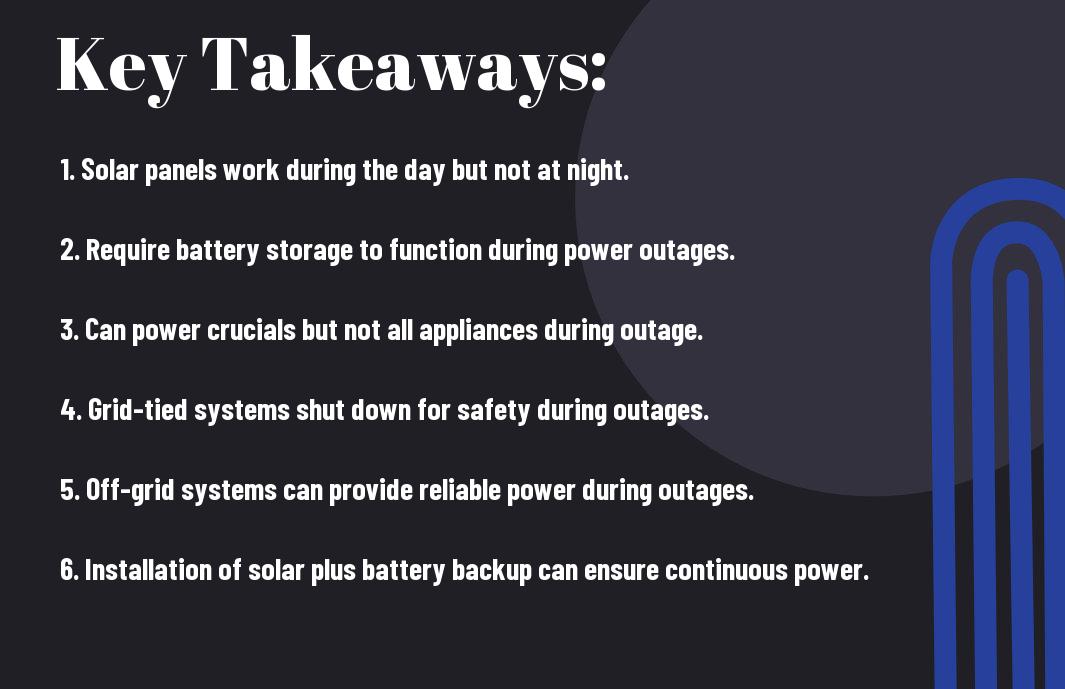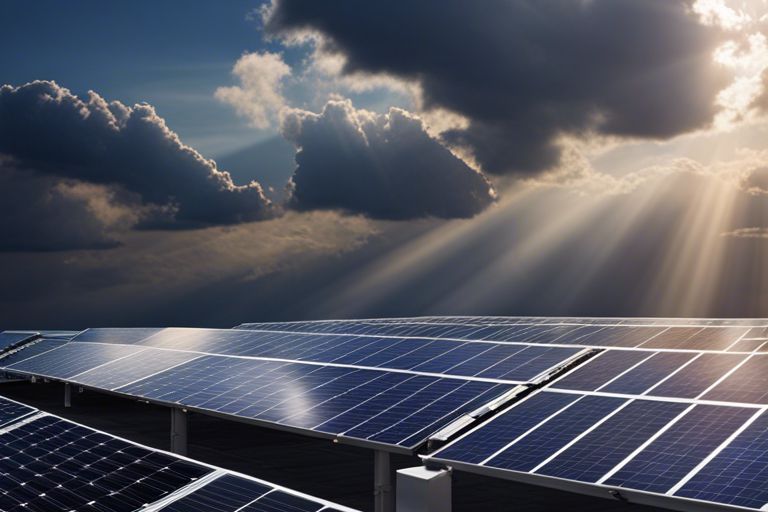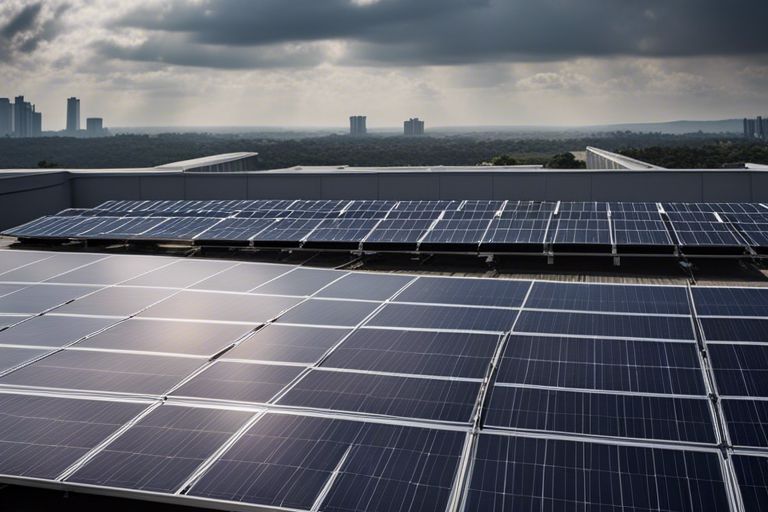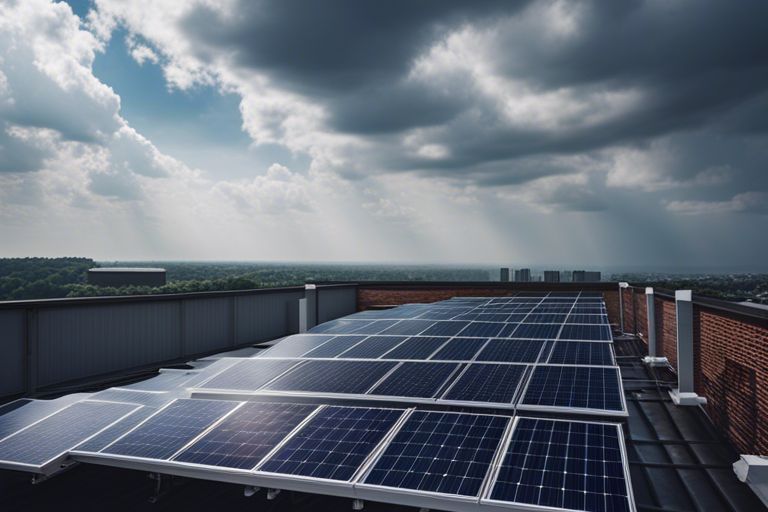Many of you may wonder, do solar panels still work when the grid is down? The answer lies in understanding how solar panels function. Solar panels generate electricity by converting sunlight into energy, independent of the grid. However, during a power outage, if your solar system is not equipped with battery storage or a backup system, it will not be able to provide electricity to your home. It is crucial to consider additional storage options if you want your solar panels to work during an outage, ensuring a reliable solar power supply even when the grid is down.
Key Takeaways:
- Solar panels can still generate electricity during a power outage: Solar panels work independently from the grid, so they can still produce power as long as there is sunlight available.
- Backup battery systems are needed for power storage: To utilize the energy generated by solar panels during an outage, you will need a backup battery system to store the excess electricity for use when the sun isn’t shining.
- Check the type of inverter you have for grid-tied systems: Grid-tied solar panel systems need to have a special inverter that can safely disconnect from the grid during a power outage to avoid sending power back to the grid and causing harm to utility workers.

How Solar Panels Work
For Can solar panels use a battery backup during a power outage, understanding how solar panels work is necessary. Solar panels are made up of photovoltaic cells that convert sunlight into electricity. These cells are typically made of silicon and are carefully designed to generate a flow of electrons when exposed to sunlight. This flow of electrons creates a direct current (DC) electrical charge, which is then converted into alternating current (AC) electricity that can power your home by an inverter.
Photovoltaic Cells
Cells within solar panels are key components that enable the conversion of sunlight into electricity. When sunlight hits these cells, it knocks electrons loose from their atoms, creating an electrical current. This flow of electricity is then captured and harnessed to power your household appliances and electronics.
Inverter Functionality
An inverter is an necessary component of your solar panel system, as it converts the DC electricity generated by the photovoltaic cells into AC electricity that can be used to power your home. The inverter is like the middleman that takes the raw electricity from the solar panels and transforms it into a form that matches the electrical outlets in your home.
Functionality-wise, the inverter is crucial for ensuring that the electricity produced by your solar panels is compatible with the electrical grid and appliances in your home. It also helps maximize the efficiency of your solar energy system by ensuring that the electricity generated is usable and safe for your household use.

Power Outage Scenarios
Grid-Tied Systems
To start, if you have a grid-tied solar panel system without battery storage, when the power goes out, your solar panels will typically stop producing electricity. This is a safety feature to prevent your solar panels from sending electricity back to the grid and potentially harming utility workers who are working to restore power. Even though your panels may be capable of generating electricity during a power outage, without a battery backup system, you won’t be able to use that power in your home.
Off-Grid Systems
One option for utilizing solar power during a power outage is to have an off-grid solar panel system with battery storage. In this scenario, your solar panels generate electricity that charges a battery bank. During an outage, you can use the energy stored in the batteries to power your imperative appliances and devices. Off-grid systems provide energy independence and can be crucial during prolonged power outages, especially in remote areas where grid power may not be readily available.
For instance, if you live in a rural area prone to frequent power outages or harsh weather conditions, an off-grid solar panel system can provide you with a reliable source of power when the grid goes down. By storing excess energy in batteries, you can ensure that your imperative needs are met, even when traditional power sources are unavailable.

Can Solar Panels Provide Power During an Outage?
Grid-Tied Systems’ Limitations
During a power outage, grid-tied solar panel systems are designed to shut down for safety reasons. This is to prevent any electricity generated by the solar panels from feeding back into the grid, which could potentially harm utility workers trying to restore power. So, if you have a grid-tied system and the grid goes down, unfortunately, you won’t be able to rely on your solar panels for electricity until the grid is back up and running.
Off-Grid Systems’ Capabilities
Off-grid solar panel systems, on the other hand, can provide power during an outage since they are designed to operate independently of the grid. If you have an off-grid system with battery storage, you can store excess energy generated by your panels during the day and use it to power your home when the sun isn’t shining or during an outage. This can provide you with a reliable source of electricity even when the grid is down.
Another advantage of off-grid systems is that they can offer energy independence, allowing you to generate and store your own power without relying on the grid. This can be particularly useful in areas prone to frequent power outages or for homeowners looking to reduce their reliance on traditional utility companies.
Why Solar Panels May Not Work During an Outage
Safety Features
Despite the benefits of solar panels, there are situations where they may not work during a power outage. Safety features integrated into solar panel systems are designed to prevent backfeeding electricity into the grid, which could be hazardous for utility workers repairing the power lines. Any power outage will trigger these safety mechanisms, disconnecting your solar panels from the grid to ensure the safety of maintenance personnel. So, even though your solar panels may be capable of generating electricity during an outage, they are designed to shut down to protect others.
Grid Synchronization
Grid synchronization is another reason why your solar panels may not work during a power outage. Grid-tied solar panel systems rely on the utility grid to operate. During a power outage, these systems are programmed to automatically shut down to prevent sending electricity into lines being repaired by utility workers. Plus, without the grid to synchronize with, your solar panels lack the reference point needed to start producing electricity.
Grid synchronization is a safety feature that ensures your solar panels do not pose a risk to utility workers during maintenance. While it may be frustrating to lose access to your solar power during an outage, it is a necessary precaution to protect both the workers and your system.
Solutions for Power Outages
Battery Backup Systems
Many homeowners opt for battery backup systems to store excess energy generated by their solar panels. These systems allow you to store electricity during the day when the sun is shining and use it during a power outage or at night when the panels are not producing electricity. Any surplus energy that your solar panels generate can be stored in the batteries for later use, providing you with a reliable source of power even when the grid is down.
Generators and Hybrid Systems
Power outages can be unpredictable, but generators and hybrid systems can provide you with an added layer of security. These systems can be used in conjunction with your solar panels to ensure that you have power when you need it most. Power generators can run on different fuels such as diesel, propane, or natural gas, and can be a viable option for prolonged outages or situations where battery backup may not be sufficient.
Backup generators can automatically kick in when a power outage is detected, providing you with seamless power without any interruption. If you are considering investing in a reliable power backup solution for your home, generators and hybrid systems can be a practical choice to complement your solar panel setup.
Benefits of Solar Panels During Outages
Reduced Energy Dependence
Energy dependence on the grid can be a concern during power outages, leaving you vulnerable to disruptions in your daily life. However, with solar panels installed on your property, you can generate your own electricity and reduce your reliance on the grid. This means that even during an outage, you can still have access to power to keep your crucial appliances running.
Environmental Benefits
Dependence on fossil fuels for electricity generation contributes to air pollution and greenhouse gas emissions. By using solar panels to generate power, you can significantly reduce your carbon footprint and help mitigate the effects of climate change. Solar energy is a clean and renewable source of power that doesn’t produce harmful emissions, making it a more environmentally friendly option.
Additionally, during power outages caused by extreme weather events, such as storms or hurricanes, solar panels can continue to function and provide electricity. This resilience can be crucial in emergency situations when access to power is crucial for safety and communication.
Summing up
Considering all points discussed in the article, it is clear that solar panels can work during a power outage as long as they are connected to a battery storage system. This system allows you to store excess energy generated during the day for use when the sun isn’t shining or during a power outage. It’s important to have the right setup and equipment to ensure that your solar panels continue to provide electricity when you need it most.
FAQ
Q: Do solar panels work during a power outage?
A: Yes, solar panels can still generate electricity during a power outage as long as they are connected to a solar battery storage system. Without a battery system, most solar panels are designed to shut off for safety reasons when the grid goes down.
Q: How do solar panels work during a power outage?
A: When paired with a solar battery storage system, solar panels can store excess energy generated during the day and provide power to your home during an outage. This setup allows you to have electricity even when the grid is down.
Q: Can I use solar panels to power my entire house during a power outage?
A: The amount of power your solar panels can provide during an outage depends on factors such as the size of your solar array, battery capacity, and your energy usage. While it may be possible to power crucial appliances, powering the entire house for an extended period may require a larger solar system and battery storage capacity.
